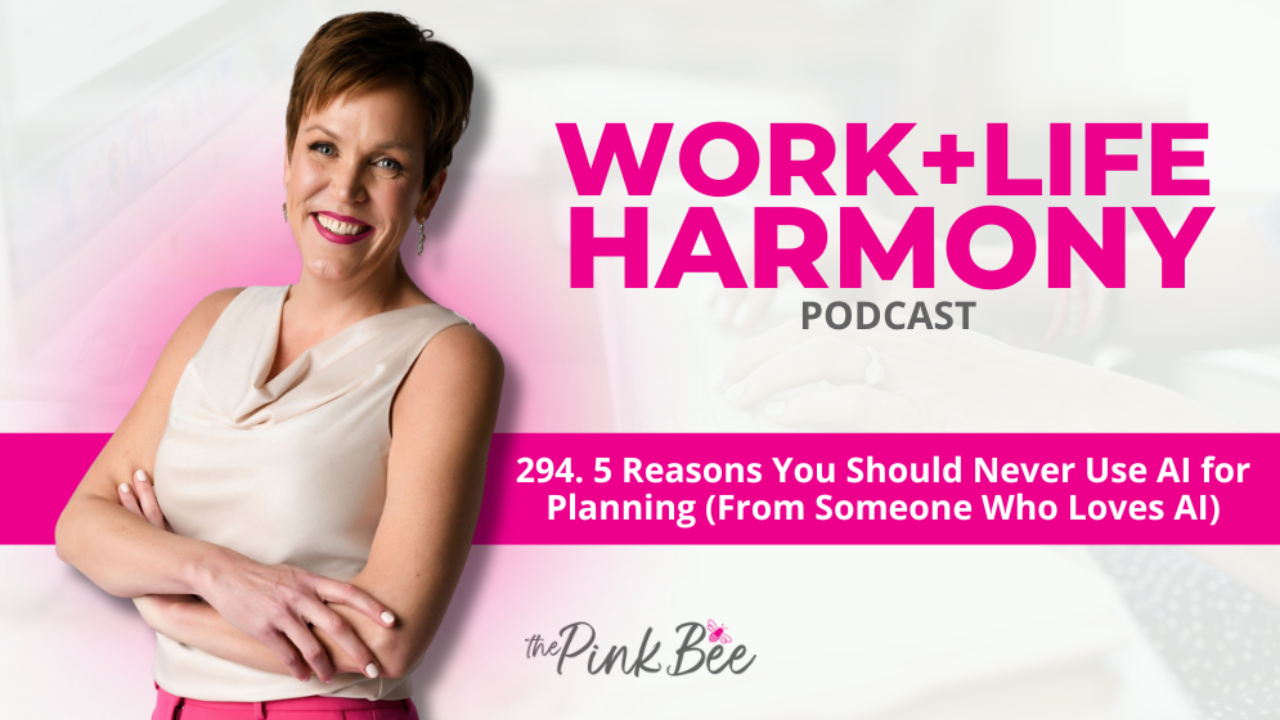294 5 Reasons You Should Never Use AI for Planning (From Someone Who Loves AI)

I’ll be the first to tell you, I love AI. I use it almost every day to support my work and personal life. But when it comes to planning your time, it is important to know where AI fits and where it doesn't.
After diving deep into several popular AI planning platforms, I am sharing the five major pitfalls I uncovered. These challenges are especially important to understand if you are balancing work, family, caregiving, and the realities of daily life. In this episode, you will hear why AI planning tools can actually create more overwhelm and where AI can truly support your planning in a helpful way.
In This Episode, We’ll Cover:
- Why your digital calendar will never be "smart enough" to run your life
- How AI planning tools make decisions without understanding what actually matters
- The danger of letting a tool prioritize your time without your input
- Why unpredictability and real-life pivots break AI’s logic
- The one way I do recommend using AI to support your planning
Listen to the episode here!
Or watch the episode here!
I’d be honored and grateful if you would head over to iTunes to leave a review and let other female entrepreneurs know what you learned! While you’re there, don’t forget to subscribe to the podcast so you don’t miss an episode.


